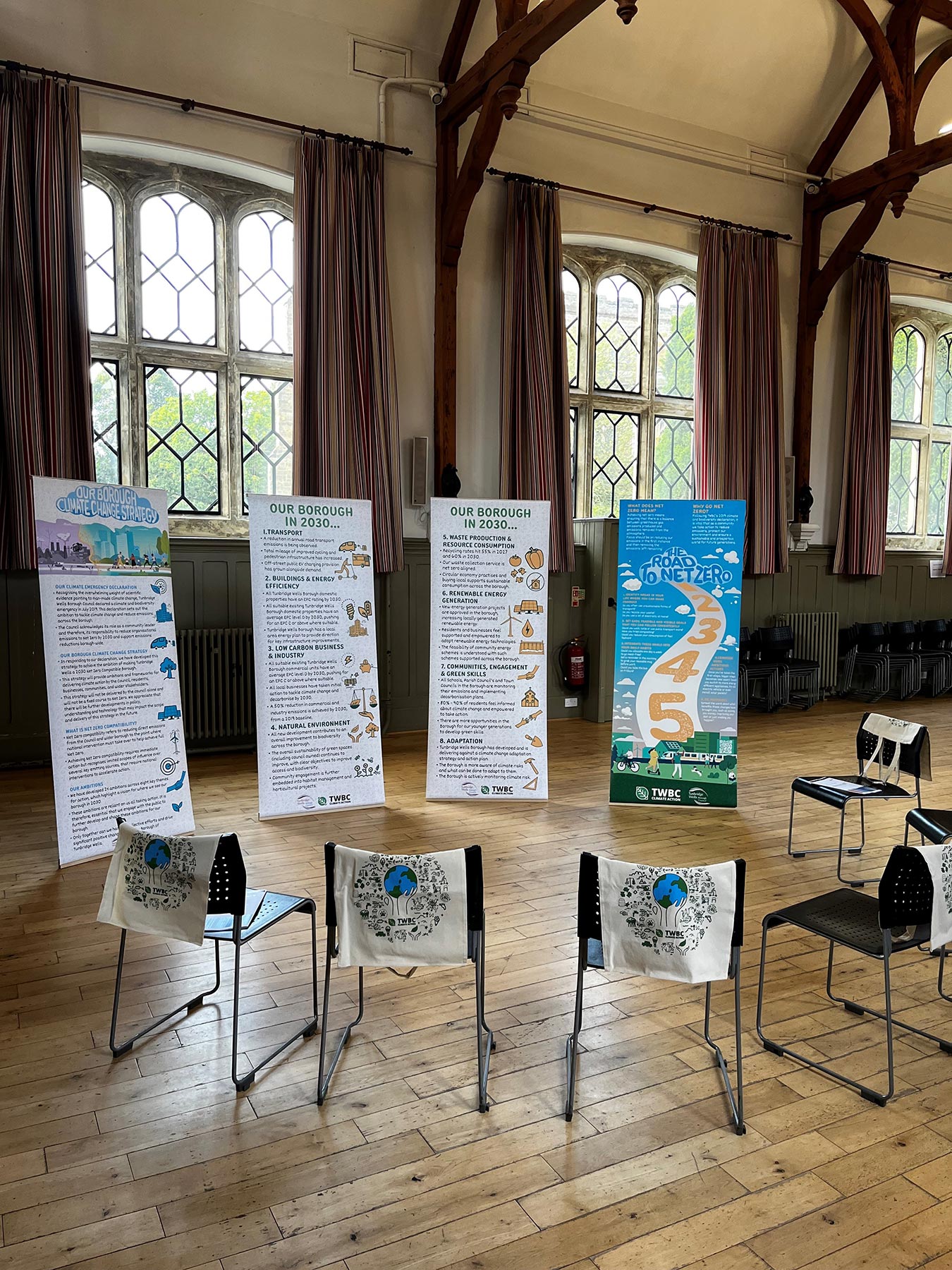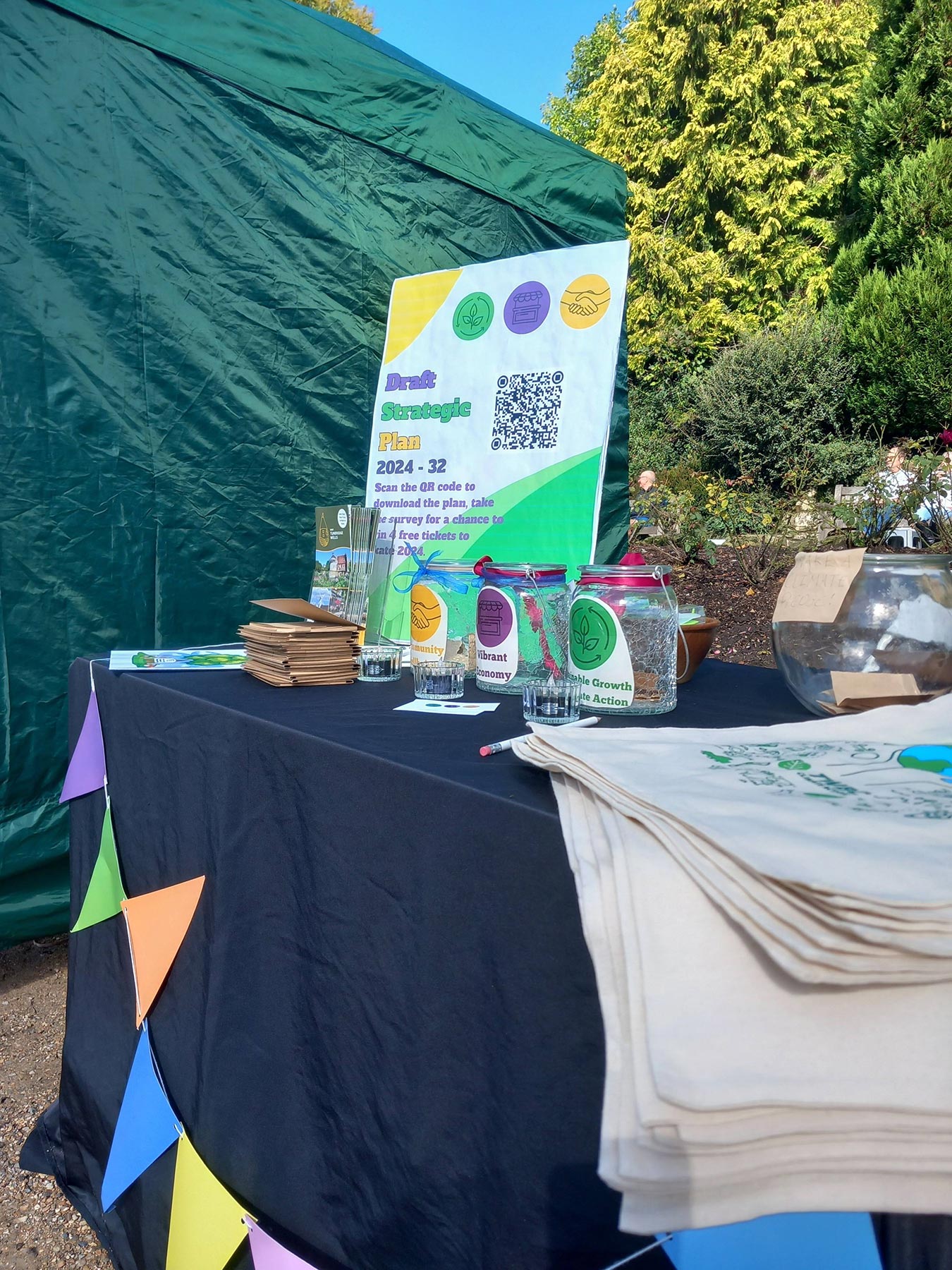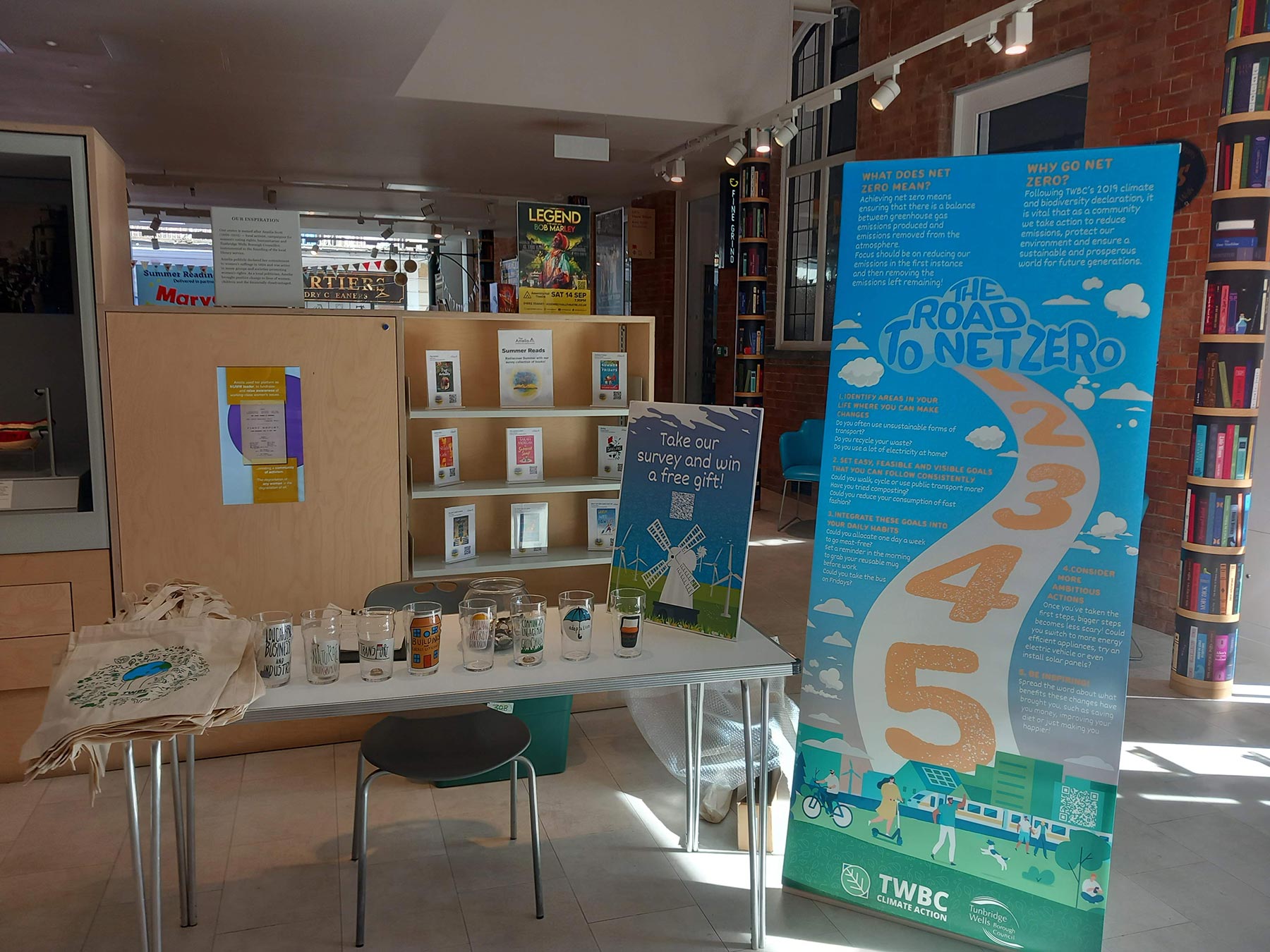Consultation
Introduction:
The 2019 declaration agreed to “take steps with partners to proactively include young people in the process, ensuring that they have a voice in shaping the future by setting up a Citizen’s Assembly as a way of also involving residents and businesses in the process as climate change will have implications for generations to come.”
The resources required to deliver a Citizen’s Assembly were prohibitive, and research suggested that this would not be the most effective format for engagement. Engagement options were discussed at cabinet (CAB116/20) and at full council (FC78/20). Full council noted different options on public engagement and agreed that the debate held at full council should provide guidance on the preferred engagement option.
We adopted the following phased approach to the public consultation of our draft borough climate change strategy.
Phase 1: Informal drop-in sessions and online engagement
The sustainability and communications teams held borough-wide drop-in sessions throughout summer and autumn 2024. During phase one, we engaged in informal discussions about climate change, addressing residents’ questions and clarifying topics where further education was needed. We wanted to know whether climate action was a priority for residents and whether they supported the delivery of a borough climate change strategy.
We spoke to over 400 residents in person throughout phase one, attending 17 drop-in events. Almost every resident we spoke to communicated their support for climate action and the council taking an active approach.
Phase 2: Focus groups
We delivered 12 90-minute focus groups from August to October 2024, engaging with 71 residents. Most sessions covered all priorities, allowing residents to guide the discussion to gain deeper insights or ask further questions. We took notes on each session so that residents’ views could be included in the strategy.
Phase 3: Statutory online consultation
Our online consultation ran until 18 October. We received 72 responses to the formal consultation and 215 responses to our short survey. More than 1,000 residents visited our consultation page, and almost 700 downloaded the strategy.
While the formal consultation focused on the draft strategy, the short survey also asked residents about actions they take or plan to take to become more sustainable. This shows how willing residents are to adopt a more sustainable lifestyle.
Response:
Response to the strategy was positive, most in-person respondents were pleased to see TWBC taking clear action and leadership on the issue of climate change. In focus groups, only one resident out of the 71 engaged with did not support the council developing this strategy (1%).
From the formal consultation 60% of respondents supported our ambitions, 35% did not support the ambitions and 5% we unsure. Of the 35% who did not support the ambitions 65% did not believe in climate change or net zero and 35% supported net zero but wanted a change to some of the ambitions and priorities.
72% of respondents supported the council in tacking climate action, 23% were not in support and 5% were unsure.
Following analysis of the consultation and engagement data, four feedback headlines were incorporated into the strategy:
• Ambitions with SMART, measurable targets are required.
• The strategy’s ambitions should be more ambitious.
• Commitment to a specific Net Zero target was preferred.
• Improved resources, funding and delivery was essential to the successful delivery of the strategy.
Thank you to all the residents that engaged with us and shared their views!






